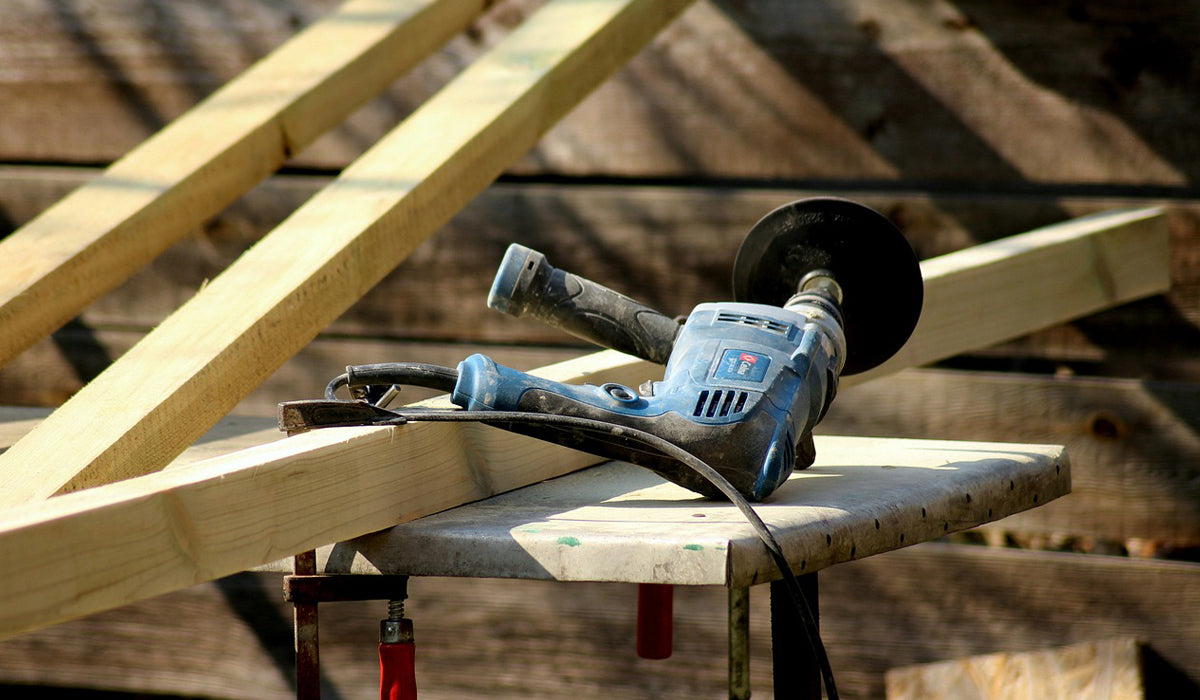A Beginner’s Guide to Choosing the Right Tools for DIY Projects
Choosing the right tools is fundamental for any DIY enthusiast. Whether you're tackling home repairs, woodworking projects, or gardening tasks, having the appropriate tools can greatly enhance your project outcomes. In this comprehensive guide, we'll explore how to select the best tools for your projects, ensuring efficiency, safety, and successful results.
Understanding Basic Tools
Before diving into specific projects, it's essential to familiarize yourself with basic hand tools and power tools. Hand tools such as hammers, screwdrivers, and pliers are indispensable for tasks ranging from assembling furniture to basic repairs. For example, a claw hammer not only drives nails effectively but also helps in removing them, making it versatile for various tasks.
Power tools like drills, circular saws, and orbital sanders provide added precision and efficiency, making them essential for larger projects such as building decks or renovating rooms. A high-quality cordless drill with a lithium-ion battery, for instance, lasts longer and delivers consistent power, ideal for demanding tasks like drilling through hardwood or metal.
Factors to Consider When Choosing Tools
Several factors should guide your tool selection process:
1. Project Requirements
Before starting any DIY project, evaluate your specific needs. Different projects require different tools. For instance, woodworking projects might need various saws, chisels, sanders, clamps, and measuring tools. Assessing the specific tasks involved will help you determine which tools are essential for achieving precision and quality craftsmanship.
2. Quality and Durability
Invest in tools that offer durability and reliability. High-quality tools not only perform better but also last longer, reducing the need for frequent replacements. For instance, a robust belt sander is designed to handle heavy-duty sanding tasks, ensuring smooth surfaces on wood and reducing the time spent on refinishing.
3. Safety Features
Prioritize tools with adequate safety features, especially when using power tools. Safety goggles, gloves, and hearing protection are essential when operating tools like saws and drills, protecting you from potential hazards.
Types of Tools for Different Projects
Each type of project requires specific tools tailored to its demands:
1. Woodworking Projects
Woodworking involves crafting and constructing items from wood. Whether you're building furniture, shelves, or decorative pieces, having the right tools is essential for precision and quality craftsmanship. Here are some indispensable woodworking tools:
-
Saws:
- Circular Saw: Ideal for making straight cuts in plywood, boards, and other materials. Perfect for cutting large pieces of wood quickly and accurately.
- Jigsaw: Used for cutting curves and intricate shapes in wood. Great for creating detailed designs and custom shapes.
- Chisels: Essential for carving and shaping wood, available in various sizes for different tasks. They help in creating fine details and smooth finishes on wood surfaces.
-
Sanders:
- Orbital Sander: Smooths wood surfaces quickly and efficiently. Ideal for preparing surfaces for finishing.
- Belt Sander: Removes larger amounts of material and is ideal for rough sanding. Useful for initial smoothing of rough wood.
- Clamps: Hold pieces of wood securely together while gluing or assembling. Essential for ensuring stability and precision during construction.
- Measuring Tools: Such as a tape measure, combination square, and level, ensuring accuracy in measurements and alignment. Crucial for achieving precise cuts and assemblies.
Having these tools ensures you can complete woodworking projects with professional results.
2. Home Repair Projects
Home repairs encompass a wide range of tasks, from fixing plumbing issues to electrical work and general maintenance around the house. Basic tools needed for home repairs include:
- Wrenches: Both adjustable and fixed sizes for tightening nuts and bolts. Essential for plumbing and mechanical tasks.
- Screwdrivers: Phillips and flat-head screwdrivers in various sizes for removing or tightening screws. Necessary for assembling and disassembling fixtures and appliances.
- Pliers: Useful for gripping, bending, and cutting wires or small objects. Ideal for electrical work and general repairs.
- Utility Knife: For cutting materials like drywall, carpet, or plastic. Versatile for a variety of cutting tasks.
- Hammer: Essential for driving nails and general demolition tasks. A staple tool for any home repair kit.
- Tape Measure: Ensures accurate measurements for installations or repairs. Critical for precise fitting and installation.
- Multimeter: For testing electrical circuits and diagnosing electrical problems safely. Important for any electrical work.
- Pipe Wrench: Specifically for plumbing tasks like tightening or loosening pipes and fittings. Vital for plumbing repairs and installations.
Having these tools readily available ensures you can tackle common household issues efficiently and effectively.
3. Gardening Projects
Gardening involves maintaining and beautifying outdoor spaces. Whether you're planting flowers, trimming hedges, or landscaping, having the right tools makes the job easier and more enjoyable. Essential gardening tools include:
- Pruners: For trimming and shaping plants, shrubs, and small trees. They help maintain the health and appearance of plants.
- Shovels: Used for digging, planting, and moving soil or compost. Crucial for preparing garden beds and planting.
- Watering Cans: For watering plants, ensuring they receive adequate moisture. Useful for maintaining plants, especially in dry conditions.
- Rakes: To gather leaves, grass clippings, and other debris. Helps in keeping the garden tidy.
- Hoes: For weeding and cultivating the soil. Essential for maintaining soil health and controlling weeds.
- Garden Forks: Used for turning soil and breaking up clumps. Important for soil aeration and preparation.
- Wheelbarrows: For transporting soil, compost, plants, and tools around the garden. Makes heavy lifting and moving more manageable.
These tools help you maintain a beautiful and productive garden with less effort.
Tool Brands and Reviews
Choosing reputable tool brands known for quality craftsmanship is key. Brands like DeWalt, Milwaukee, and Makita are renowned for their reliable tools and excellent customer support. Reading reviews from experienced DIYers provides valuable insights into the performance and durability of different tools, helping you make informed decisions.
Tips for Purchasing Tools
Consider these tips when buying tools:
1. Budgeting:
Set a budget based on your project needs and stick to it. For instance, allocating funds for a versatile drill ensures you can handle various tasks without compromising on quality.
2. Research
Compare tools based on performance, durability, and user reviews. Websites and forums dedicated to DIY projects offer excellent resources for gathering information and recommendations.
3. Shopping
Purchase tools from reputable suppliers like North Dundas Building Supplies in Winchester, Ontario. They offer a wide selection of quality tools and knowledgeable staff, ensuring you find the right tools for your projects.
Tool Maintenance and Care
To extend the lifespan of your tools:
- Cleaning: Regularly clean tools after use to remove dirt, dust, and debris. For example, cleaning saw blades prevents rust and ensures optimal cutting performance.
- Storage: Store tools in a dry, secure place to prevent damage. Consider using toolboxes or wall-mounted systems to keep tools organized and easily accessible.
Conclusion
Choosing the right tools is essential for achieving successful DIY projects. Whether you're a beginner or seasoned DIYer in Canada, having the best tools ensures efficiency, safety, and quality results. Subscribe now to our email newsletter at North Dundas Building Supplies in Winchester, Ontario, for expert tips, exclusive offers on tools, and more. Start your DIY journey with confidence and build your projects with precision and ease.




